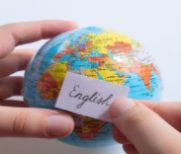Great results are now back from last year’s EQAO literacy test: Nearly 80% of our first time writers were successful on the test. These results, though very good, are not without hard work from many teachers and staff within TCI. We begin preparing students in grade 9 for this very important test through literacy quizzes that take place every second Friday in both grade 9 and 10 home rooms.
-resize230x182.png?ver=2023-06-16-000413-773) Through this, students not only get extra reading practice but are able to see that literacy is an important skill that runs through all of their subjects. On top of this, it is an annual event at TCI to have grade 9’s write a practice test which our staff and some staff from our feeder schools mark. These practice tests give us a better understanding, as early as possible, who will need extra help to prepare for the grade 10 literacy test. Through these and a number of other interventions, the staff at TCI prevents any student from falling through the cracks and missing the support which he or she needs. In this way, the literacy test is merely a very good reason to find the students who we can help to be not only successful on the EQAO test, but to be more successful in all of their classes.
Through this, students not only get extra reading practice but are able to see that literacy is an important skill that runs through all of their subjects. On top of this, it is an annual event at TCI to have grade 9’s write a practice test which our staff and some staff from our feeder schools mark. These practice tests give us a better understanding, as early as possible, who will need extra help to prepare for the grade 10 literacy test. Through these and a number of other interventions, the staff at TCI prevents any student from falling through the cracks and missing the support which he or she needs. In this way, the literacy test is merely a very good reason to find the students who we can help to be not only successful on the EQAO test, but to be more successful in all of their classes.
THE IMPORTANCE OF LITERACY, LANGUAGE, AND THE ENGLISH CURRICULUM
Language development is central to students’ intellectual, social, cultural, and emotional growth and must be seen as a key component of the curriculum. When students learn to use language, they learn to value the power of language and to use it responsibly.

They learn to express feelings and opinions and to support their opinions with sound arguments and evidence from research. They become aware of the many purposes for which language is used and the diverse forms it can take to serve particular purposes and audiences.
Language is the basis for thinking, communicating, learning, and viewing the world. Students need language skills in order to comprehend ideas and information, to interact socially, to inquire into areas of interest and study, and to express themselves clearly and demonstrate their learning. Learning to communicate with clarity and precision will help students to thrive in the world beyond school.
Literacy is about more than reading or writing – it is about how we communicate in society. It is about social practices and relationships, about knowledge, language and culture. Those who use literacy take it for granted – but those who cannot use it are excluded from much communication in today’s world. Indeed, it is the excluded who can best appreciate the notion of “literacy as freedom”. (UNESCO, Statement for the United Nations Literacy Decade, 2003–2012)
